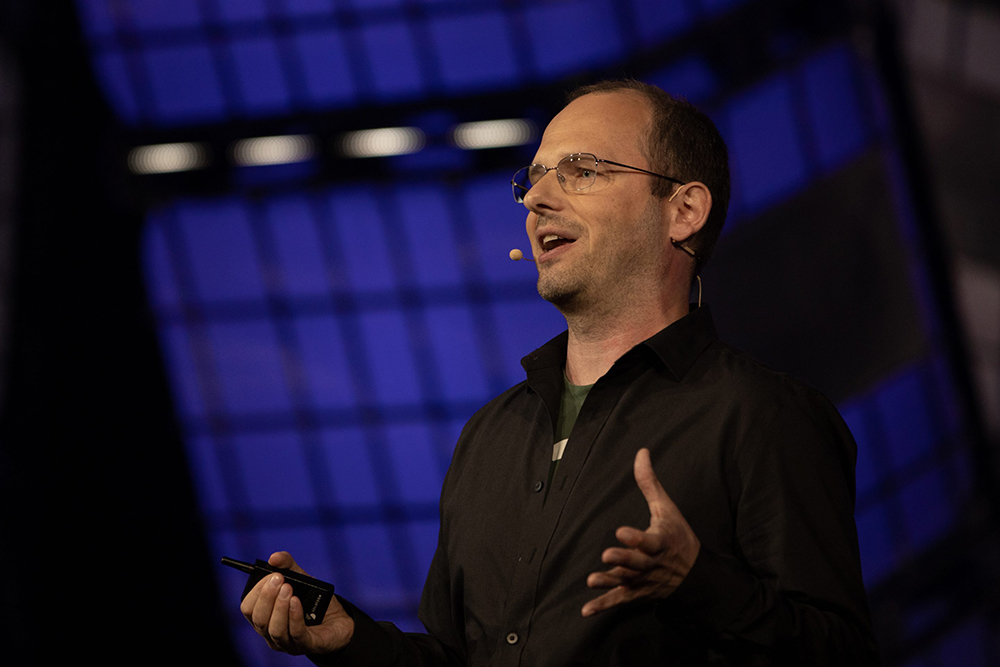
软件已经成为支撑美国经济的基础。今天,几乎每一种消费体验,从自动取款机交易到在线买入卖出股票,再到通过支票和储蓄账户转账,都离不开软件开发人员编写、运行和维护的数百万行代码。目前,许多华尔街机构仍在使用早在半个多世纪前艾森豪威尔时期编写的代码,但这种代码易受攻击。尽管金融机构在尽力使其代码库现代化,但我们正处于一个临界点,可能会使我们所知的数字经济遭到破坏。然而,人工智能可能是其中的解决方案。
通用商业语言(Common Business-Oriented Language, COBOL)最早创建于1959年。在尚未出现如今这样严格的监管环境之前,金融机构作为新技术的早期采用者保持着其领先地位,他们在大型计算机部署的应用程序中使用COBOL。如今,尽管已经过去半个多世纪,COBOL仍然是支持超过43%的金融机构运转的数字基础。COBOL可以处理3万亿美元的日常交易,95%的ATM刷卡,以及支票和储蓄账户转账。在COBOL的全盛时期,华尔街可以进行创新,但随着Stripe、Paypal和Adyen等支付处理器成为新常态,COBOL阻碍了银行机构的现代化进程,并构成了紧迫的安全威胁。
在网络间谍活动资金充足、行动周密的时代,Beatlemania诞生之前生成的代码可能会让系统像纸牌屋一样崩溃。安全威胁和漏洞在2022年猛增25%。更具体地说,COBOL容易受到一种被称为“SQL注入”的攻击。这是一种削弱性数据攻击,已经破坏了数百万的信用卡和数据交易,使商业网站崩溃,并泄露了爱沙尼亚几乎所有公民的健康记录。由于金融机构的大型计算机仍然基于COBOL运行,这些威胁可能会导致数万亿的经济价值丧失,严重影响人们日常的财务稳定。
此外,真正知道如何维护传统代码的开发人员由于年龄原因正迅速离开劳动力队伍。我们正在与时间赛跑,需要在人才库萎缩之前实现COBOL的现代化。这个过程持续时间并不短,可能需要几年甚至十年才能完成。在生成式人工智能的帮助下,这种现代化转变的速度和成本可以从根本上降低,反过来又将巩固数字经济的基础。
在过去的一年里,生成式人工智能结对编程工具改变了软件开发的本质,这是世界上第一批人工智能发挥劳动力作用的例子之一。人工智能驱动的开发工具已经可以为开发人员完成近50%的代码,并使他们完成工作的时间缩短近一半。在未来几年,人工智能将为计算机编程的整个过程提供支持,可以将生产率提升幅度从55%迅速提高到1000%。如今,人工智能能够解释这些大型计算机代码库中的全部内容,并且能够执行从COBOL向Java或Golang等现代软件转型过程中开发人员需要处理的高达80%的代码和手动任务。随着未来几年使用情景和功能的扩充,人工智能的能力只会不断增强。
对于金融服务机构以及任何仍在使用COBOL和类似过时的传统软件的机构而言,赋予其开发人员人工智能相关能力至关重要。当今社会依赖于开发人员的生产率提升,理解这些过时的编程语言的能力,以及将这些过时的代码熟练转换为更安全、更敏捷的代码库的能力。随着各机构支持人工智能和软件的整合,我们可以在几个季度内实现经济整个数字支柱的转变,而无需等上几十年的时间,并且避免数万亿的经济活动在此过程中受到损害。
很明显,华尔街的下一场危机可能与数字化有关。然而,在人工智能的帮助下,我们有希望避免另一场酝酿已久的金融危机。(财富中文网)
托马斯•多梅克是GitHub的首席执行官。
Fortune.com上发表的评论文章中表达的观点,仅代表作者本人的观点,不代表《财富》杂志的观点和立场。
翻译:郝秀
审校:汪皓
托马斯·多梅克是GitHub的首席执行官。 摄影:CHLOE ELLINGSON——彭博社——盖蒂图片社
软件已经成为支撑美国经济的基础。今天,几乎每一种消费体验,从自动取款机交易到在线买入卖出股票,再到通过支票和储蓄账户转账,都离不开软件开发人员编写、运行和维护的数百万行代码。目前,许多华尔街机构仍在使用早在半个多世纪前艾森豪威尔时期编写的代码,但这种代码易受攻击。尽管金融机构在尽力使其代码库现代化,但我们正处于一个临界点,可能会使我们所知的数字经济遭到破坏。然而,人工智能可能是其中的解决方案。
通用商业语言(Common Business-Oriented Language, COBOL)最早创建于1959年。在尚未出现如今这样严格的监管环境之前,金融机构作为新技术的早期采用者保持着其领先地位,他们在大型计算机部署的应用程序中使用COBOL。如今,尽管已经过去半个多世纪,COBOL仍然是支持超过43%的金融机构运转的数字基础。COBOL可以处理3万亿美元的日常交易,95%的ATM刷卡,以及支票和储蓄账户转账。在COBOL的全盛时期,华尔街可以进行创新,但随着Stripe、Paypal和Adyen等支付处理器成为新常态,COBOL阻碍了银行机构的现代化进程,并构成了紧迫的安全威胁。
在网络间谍活动资金充足、行动周密的时代,Beatlemania诞生之前生成的代码可能会让系统像纸牌屋一样崩溃。安全威胁和漏洞在2022年猛增25%。更具体地说,COBOL容易受到一种被称为“SQL注入”的攻击。这是一种削弱性数据攻击,已经破坏了数百万的信用卡和数据交易,使商业网站崩溃,并泄露了爱沙尼亚几乎所有公民的健康记录。由于金融机构的大型计算机仍然基于COBOL运行,这些威胁可能会导致数万亿的经济价值丧失,严重影响人们日常的财务稳定。
此外,真正知道如何维护传统代码的开发人员由于年龄原因正迅速离开劳动力队伍。我们正在与时间赛跑,需要在人才库萎缩之前实现COBOL的现代化。这个过程持续时间并不短,可能需要几年甚至十年才能完成。在生成式人工智能的帮助下,这种现代化转变的速度和成本可以从根本上降低,反过来又将巩固数字经济的基础。
在过去的一年里,生成式人工智能结对编程工具改变了软件开发的本质,这是世界上第一批人工智能发挥劳动力作用的例子之一。人工智能驱动的开发工具已经可以为开发人员完成近50%的代码,并使他们完成工作的时间缩短近一半。在未来几年,人工智能将为计算机编程的整个过程提供支持,可以将生产率提升幅度从55%迅速提高到1000%。如今,人工智能能够解释这些大型计算机代码库中的全部内容,并且能够执行从COBOL向Java或Golang等现代软件转型过程中开发人员需要处理的高达80%的代码和手动任务。随着未来几年使用情景和功能的扩充,人工智能的能力只会不断增强。
对于金融服务机构以及任何仍在使用COBOL和类似过时的传统软件的机构而言,赋予其开发人员人工智能相关能力至关重要。当今社会依赖于开发人员的生产率提升,理解这些过时的编程语言的能力,以及将这些过时的代码熟练转换为更安全、更敏捷的代码库的能力。随着各机构支持人工智能和软件的整合,我们可以在几个季度内实现经济整个数字支柱的转变,而无需等上几十年的时间,并且避免数万亿的经济活动在此过程中受到损害。
很明显,华尔街的下一场危机可能与数字化有关。然而,在人工智能的帮助下,我们有希望避免另一场酝酿已久的金融危机。(财富中文网)
托马斯•多梅克是GitHub的首席执行官。
Fortune.com上发表的评论文章中表达的观点,仅代表作者本人的观点,不代表《财富》杂志的观点和立场。
翻译:郝秀
审校:汪皓
Software has formed the foundation of the United States economy. Today, nearly every consumer experience, from ATM transactions to buying and trading shares online to shifting money through your checking and savings accounts depends on millions of lines of code built, run, and maintained by software developers. Currently, many Wall Street institutions are still operating on vulnerable code written as early as the Eisenhower era over half a century ago. Despite financial institutions’ best efforts to modernize their code bases, we are now at a breaking point that could disrupt the digital economy as we know it. However, AI may be the solution.
Common Business-Oriented Language (COBOL) was first created in 1959. Prior to the rigorous regulatory environment in which they operate today, financial institutions were ahead of the curve as early adopters of new technologies, using COBOL in applications deployed on mainframe computers. Now, over half a century later, COBOL still serves as the digital foundation for over 43% of all financial institutions. COBOL processes $3 trillion of daily commerce, 95% of all ATM card swipes, and our checking and savings accounts. In its heyday, COBOL allowed Wall Street to be innovative, but as payment processors such as Stripe, Paypal, and Adyen have become the new normal, COBOL prevents our banking institutions from modernizing and represents an imminent security threat.
In the age of well-funded and sophisticated acts of cyber espionage, code generated before the birth of Beatlemania could make the system collapse like a house of cards. Security threats and vulnerabilities spiked 25% in 2022. More specifically, COBOL is prone to a form of attack called SQL injection, a debilitating data attack that has compromised millions in credit card and data transactions, crashed commerce websites, and compromised the health records of nearly all the citizens of Estonia. With the mainframes of financial institutions still operating on COBOL, these threats could wipe out trillions in economic value, severely impacting the financial stability of everyday people.
Additionally, the developers who actually know how to maintain legacy code are rapidly aging out of the workforce. We are in a race against the clock to modernize COBOL before the talent pool contracts. That process isn’t quick–and could take years if not a decade to complete. The speed and cost of this transformation can be fundamentally reduced with the aid of generative AI, which will in turn fortify the foundation of our digital economy.
In the past year, generative AI pair programming tools have changed the nature of software development, representing one of the world’s first instances of AI joining the workforce. Already, AI-powered developer tools are completing nearly 50% of code for developers and allowing them to complete work in nearly half the time. In the coming years, with AI set to power the entire cycle of computer programming, these productivity gains could quickly go from 55% to 1000%. Today, AI is capable of interpreting the entirety of these mainframe code bases and executing up to 80% of the code and manual tasks developers will need to complete the transition away from COBOL into modern software such as Java or Golang. AI’s capabilities will only increase as it continues to gain context and capabilities in the coming years.
It’s vital that financial services institutions–and anyone who is still operating on COBOL and similar outdated legacy software–empower their developers with the power of AI. Our society is now dependent on the productivity gains of developers, their ability to understand these aging programming languages, and deftly convert aging code to a more secure and agile code base. As organizations embrace the collision of AI and software, we can transform the entire digital backbone of our economy in a matter of quarters, instead of decades, and save trillions of economic activity from being compromised in the process.
It is clear that Wall Street’s next crisis could be digital. However, with the help of AI, we stand a chance of avoiding another financial crisis that has been long in the making.
Thomas Dohmke is the CEO of GitHub.
The opinions expressed in Fortune.com commentary pieces are solely the views of their authors and do not necessarily reflect the opinions and beliefs of Fortune.






